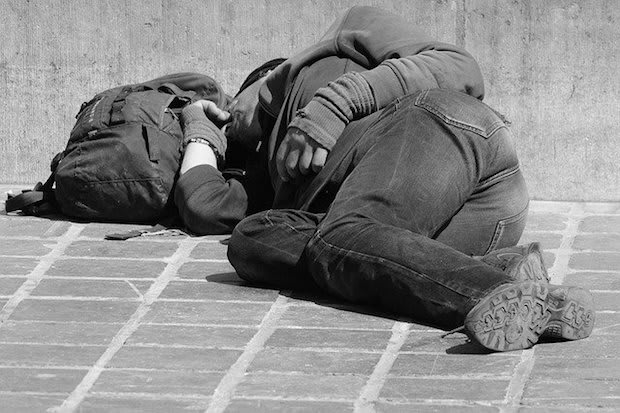Table of Contents
I. The Importance of Mental Health
V. Financial Problems & Homelessness
The Importance of Mental Health
Experiencing mental health highs and lows is a part of life for many people across the world. In most cases, a bad mood will rectify itself, but other times, it may continue for a long period. You may have a mental health disorder if your mood, thinking, and behavior are affected on an ongoing basis.
Living with a mental illness can be incredibly difficult and miserable, affecting a person’s social and work life. Luckily, there are many treatment options for mood disorders like depression and its offshoot illnesses. Psychotherapy, as well as medications like Effexor XR (venlafaxine XR), Wellbutrin XL (bupropion XL), Anafranil (clomipramine), Celexa (citalopram), and Amitriptyline, can be used to regulate brain chemicals and stabilize mood.
Many mental health disorders are treatable, but several complications can occur if these disorders are left untreated. Read on to learn more about complications that can occur with common mental health illnesses. [1]
Around three out of five Americans report feeling lonely every year. Prolonged periods of loneliness can trigger a mental health illness. On the flip side, having a mental health illness can lead to isolation. Those who have a physical illness or disability report a higher prevalence of loneliness than those without a disability. Being lonely can increase the amount of cortisol in the body. Cortisol is a stress hormone that can affect your immune system and physical health. Higher levels of cortisol can develop into depression or make your current mental health disorder worse. [2] If you are experiencing bouts of loneliness, it is essential to reach out to friends or family members. Someone close to you has likely experienced depression or loneliness, so you are not alone. If that feeling does not go away, you may want to speak to your doctor. Self-harm describes any behavior that causes harm to oneself. When a person is experiencing chronic mental health problems, they may experience suicidal feelings or thoughts of self-harm. The disorganized thinking of a person experiencing clinical depression or psychotic symptoms can lead to violence towards oneself or others. Some people with chronic mental health disorders may engage in self-harm as a coping mechanism to relieve the build-up of pressure from distressing thoughts and feelings. Many psychologists believe that there is a cycle of shame that can result in self-harm. That cycle starts with an emotional overload that results in self-harm. Once a person participates in self-harm, temporary relief is felt, quickly followed by shame or grief. This cycle may continue until treatment is found. If self-harm escalates and you feel like you are experiencing suicidal thoughts or actions, there is support available. Talking to someone is the first step of getting out of this cycle. [3] Other mental health disorders can put others in harm’s way as much as the patient. The majority of those with severe mental health disorders are never violent. Unfortunately, diseases like schizophrenia or bipolar disorder can cause symptoms of psychosis. These symptoms can influence a person’s thinking and may lead to outbursts of violence. The use of drugs or alcohol with a mental health disorder may also increase your risk of participating in violent behavior. [4] Many people think that mental health only involves a person’s thoughts or feelings, but it can also have physical effects. Heart disease is the leading cause of cardiovascular disease in those who have schizophrenia. These new findings have led doctors and scientists to believe that mentally ill individuals are under-treated for various physical health conditions, including heart disease. [5] Those with depression are also at a higher risk of heart disease. Depression and heart disease are often a two-way relationship: you are more likely to develop depression if you have heart disease and vice versa. Because mental health disorder risk factors often overlap with heart disease risk factors, it can be difficult to disentangle these complications. For example, depression is associated with several other heart disease risk factors like smoking and alcohol use. Nervous system dysfunction, elevated cortisol levels, and elevated markers of inflammation can also contribute to the rate of heart disease in mental health patients. [6] Homelessness is a problem in many countries in the world and the United States is no exception. According to the U.S. Department of Housing and Urban Development, 564,708 people are experiencing homelessness throughout America. Around 25 percent of those people are also experiencing serious mental illness. Those who have bipolar disorder, depression, schizophrenia, anxiety disorders, and substance use disorders make up the majority of the mentally ill homeless population. If a person cannot seek medical help, behavioral and cognitive changes can make it difficult to earn a stable income and find secure housing. Symptoms of delusions and hallucinations can make it difficult to participate in daily activities. Along with these symptoms, drug and alcohol abuse can increase a mentally ill person's risk of becoming homeless. Being homeless can exacerbate existing mental illnesses. Those with a mental illness are likelier to have been the victim of abuse or neglect as a child, making them likelier to be a victim or perpetrator of crime later in life. Once their mental illness leads to a criminal history, a job becomes difficult to secure. Leading back to homelessness, this cycle can be hard to break. [7] Everyone should take mental health seriously and treat negative symptoms immediately. If you feel at risk for a mental health disorder, avoid falling into a deteriorating cycle by reaching out to a friend, family member, or mental health professional to receive a proper diagnosis and treatment plan. The content in this article is intended for informational purposes only. This website does not provide medical advice. In all circumstances, you should always seek the advice of your physician and/or other qualified health professionals(s) for drug, medical condition, or treatment advice. The content provided on this website is not a substitute for professional medical advice, diagnosis, or treatment.
Social Isolation
Self-Harm or Violence

Heart Disease
Financial Problems & Homelessness

